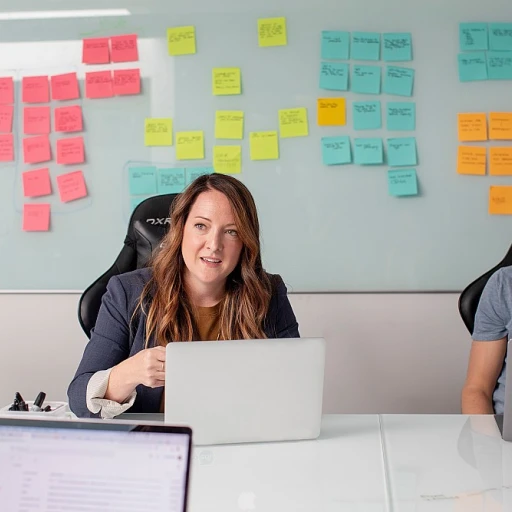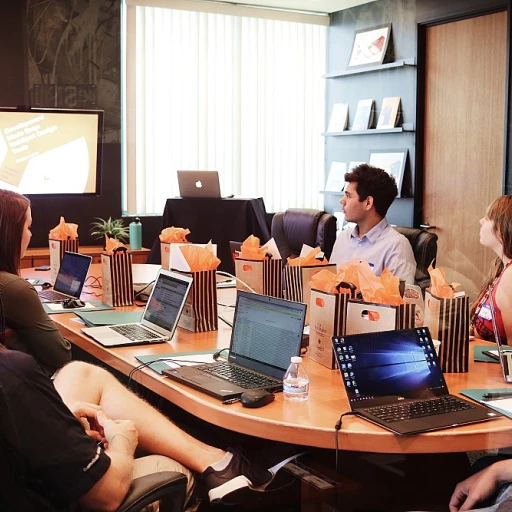Understanding the Growth Mindset
Decoding the Growth Mindset
Understanding the concept of a growth mindset is crucial for anyone embarking on the journey of lifelong learning. Coined by psychologist Carol Dweck, the growth mindset theory suggests that individuals who believe their abilities and intelligence can be developed through dedication and hard work tend to achieve more than those with a fixed mindset. This belief system is not just limited to students in a classroom setting but extends to people in all walks of life, influencing how they approach challenges and setbacks.
The growth mindset fosters a love for learning and resilience, essential traits for continuous learning. It encourages students and professionals alike to view challenges as opportunities to grow rather than insurmountable obstacles. This mindset shift is pivotal in transforming how individuals perceive their capabilities, allowing them to embrace new skills and knowledge throughout their lives.
In contrast, a fixed mindset holds that abilities are static and unchangeable. This belief can hinder progress and achievement, as individuals may avoid challenges out of fear of failure. By understanding the effects of these mindset beliefs, educators and leaders can implement mindset interventions to help students and employees cultivate a more positive outlook on learning and growth.
Research in social psychology and educational settings has shown that mindset interventions can significantly impact student achievement and motivation. Teachers who incorporate growth mindset strategies in their classrooms often report increased student engagement and improved learning outcomes. Similarly, in professional environments, fostering a growth mindset can lead to enhanced performance and innovation.
For those interested in delving deeper into the practical applications of a growth mindset, exploring mastering techniques for lifelong learning can provide valuable insights and strategies to implement in everyday life.
The Role of Growth Mindset in Continuous Learning
The Influence of Mindset on Continuous Learning
In the realm of continuous learning, the concept of a growth mindset plays a pivotal role. Developed through the lens of social psychology, this mindset theory suggests that individuals who believe their abilities can be developed through dedication and hard work are more likely to embrace challenges and persist in the face of setbacks. This belief system contrasts with a fixed mindset, where individuals see their abilities as static and unchangeable.
For students and professionals alike, adopting a growth mindset can significantly impact their learning journey. Research indicates that those with growth mindsets are more resilient, viewing effort as a path to mastery rather than a sign of inadequacy. This mindset fosters a love for learning and a resilience that is essential for great achievement.
Mindset Beliefs and Their Effects on Learning
The beliefs we hold about our capabilities can profoundly affect our motivation and achievement. In educational settings, teachers who encourage a growth mindset in their students often see improved outcomes. Students are more likely to take on challenges, persist through difficulties, and ultimately achieve higher levels of success.
Mindset interventions, such as those inspired by the work of Carol Dweck, aim to shift students from a fixed mindset to a growth mindset. These interventions can help students develop a more positive attitude towards learning, leading to increased effort and better academic performance. The effects of these interventions are supported by numerous studies and unlocking potential through lifelong learning is a testament to their success.
Incorporating growth mindset principles into professional development can also yield substantial benefits. By fostering an environment where employees feel empowered to learn and grow, organizations can enhance their workforce's skills and adaptability, preparing them for the challenges of tomorrow's work landscape.
Overcoming Challenges in Lifelong Learning
Facing the Hurdles of Lifelong Learning
Embracing lifelong learning comes with its set of challenges, but understanding the growth mindset can significantly help in overcoming these obstacles. The concept of a growth mindset, as opposed to a fixed mindset, is crucial here. It is rooted in the belief that abilities and intelligence can be developed with effort and perseverance. This mindset is particularly essential when dealing with the inevitable setbacks and difficulties encountered in the journey of continuous learning.
One of the primary challenges is the fear of failure. Many students and professionals alike may feel discouraged when they do not achieve their goals immediately. However, adopting a growth mindset can shift this perspective. Instead of viewing failure as a reflection of their fixed abilities, individuals can see it as an opportunity to learn and improve. This shift is supported by mindset interventions that encourage resilience and persistence.
Another common hurdle is the lack of motivation. Continuous learning requires sustained effort, and it can be challenging to maintain enthusiasm over time. Teachers and mentors can play a pivotal role here by fostering a supportive environment that encourages a growth mindset. This involves recognizing effort, celebrating progress, and helping learners set realistic and achievable goals. Such strategies not only enhance motivation but also lead to greater achievement and satisfaction.
Moreover, the fixed mindset can be a significant barrier to lifelong learning. Individuals with a fixed mindset may believe that their abilities are static and unchangeable. This belief can limit their willingness to take on new challenges or pursue further learning opportunities. To counter this, mindset interventions can be employed to help students and professionals alike reframe their beliefs about their capabilities. By highlighting the effects of effort and the potential for growth, these interventions can inspire a more positive and proactive approach to learning.
Finally, societal and cultural expectations can also impact one's willingness to engage in lifelong learning. In some contexts, there may be pressure to conform to certain standards or to achieve success quickly. This can create a fixed mindset environment where individuals feel they must prove their worth rather than focus on the learning process itself. Overcoming these societal pressures involves promoting a culture that values growth and learning as ongoing processes, rather than fixed endpoints.
In conclusion, while the challenges of lifelong learning are real, they are not insurmountable. By embracing a growth mindset and utilizing strategies that support continuous improvement, individuals can navigate these challenges effectively. This approach not only enhances personal and professional development but also contributes to building skills for tomorrow's workforce.
Practical Strategies to Cultivate a Growth Mindset
Practical Ways to Develop a Growth Mindset
Adopting a growth mindset can significantly enhance your lifelong learning journey. Here are some practical strategies to help you foster this mindset effectively:
- Embrace Challenges: View challenges as opportunities to grow rather than obstacles. This shift in perspective can transform your learning experience, encouraging persistence and resilience.
- Value Effort: Recognize that effort is a crucial component of success. By valuing hard work, you reinforce the belief that abilities can be developed through dedication and perseverance.
- Learn from Criticism: Constructive feedback is a valuable tool for growth. Instead of taking criticism personally, use it to identify areas for improvement and refine your skills.
- Celebrate Others' Success: Instead of feeling threatened by the success of others, view it as inspiration. This mindset encourages collaboration and learning from peers, enhancing your own development.
- Set Learning Goals: Establish clear, achievable goals to guide your learning process. This helps maintain focus and motivation, ensuring steady progress.
- Reflect on Learning Experiences: Regular reflection on what you've learned helps consolidate knowledge and identify areas for further exploration. This practice reinforces the growth mindset by emphasizing continuous improvement.
By integrating these strategies into your daily routine, you can effectively cultivate a growth mindset, paving the way for lifelong learning and personal development. This approach not only enhances your ability to learn but also prepares you to tackle future challenges with confidence.
Incorporating Growth Mindset in Professional Development
Fostering Growth in Professional Settings
Incorporating a growth mindset into professional development is crucial for both individuals and organizations aiming to stay competitive. The concept, rooted in social psychology, emphasizes the belief that abilities can be developed through dedication and hard work. This mindset contrasts with the fixed mindset, where people believe their talents are innate and unchangeable.
For professionals, adopting a growth mindset can lead to significant improvements in performance and achievement. When employees view challenges as opportunities to learn rather than threats to their competence, they become more resilient and innovative. This shift in mindset can be particularly beneficial in environments that are rapidly evolving, such as technology and creative industries.
Strategies for Growth in the Workplace
- Encourage Continuous Learning: Organizations should create opportunities for employees to learn new skills and knowledge. This could be through workshops, online courses, or mentorship programs. By fostering an environment where learning is valued, companies can help employees maintain a growth mindset.
- Provide Constructive Feedback: Feedback should focus on effort and strategies rather than innate ability. This approach helps reinforce the belief that improvement is possible through effort and perseverance.
- Set Challenging Yet Achievable Goals: Setting goals that stretch employees' abilities encourages them to push their limits and develop new competencies. These goals should be realistic and aligned with the individual's career aspirations.
- Promote a Culture of Collaboration: When teams work together, they can share diverse perspectives and learn from each other. This collaborative environment supports the development of a growth mindset by showing that collective effort leads to success.
Mindset Interventions in Professional Development
Mindset interventions can be implemented to help employees shift from a fixed to a growth mindset. These interventions often involve training sessions that educate individuals about the principles of mindset theory and how they apply to their work life. By understanding that intelligence and abilities are not static, employees are more likely to embrace challenges and persist in the face of setbacks.
Moreover, mindset beliefs can be reinforced through leadership. Leaders who model a growth mindset by being open to feedback and demonstrating a willingness to learn from mistakes can inspire their teams to adopt similar attitudes. This leadership approach not only enhances individual growth but also contributes to the overall success of the organization.
Real-Life Success Stories
Transformative Journeys with a Growth Mindset
Embracing a growth mindset can lead to remarkable transformations in various aspects of life. Real-life stories of individuals who have adopted this mindset provide compelling evidence of its power. These stories illustrate how the shift from a fixed mindset to a growth mindset can lead to significant personal and professional achievements.
From Struggling Student to Academic Success
Consider the journey of a student who once believed that their abilities were set in stone. With the encouragement of teachers who understood the principles of growth mindset, this student began to see challenges as opportunities for learning rather than insurmountable obstacles. Over time, their mindset shifted from fixed to growth, resulting in improved academic performance and a newfound love for learning. This transformation underscores the importance of fostering growth mindsets in educational settings.
Professional Growth Through Continuous Learning
In the workplace, individuals who embrace a growth mindset often experience accelerated career advancement. One professional, initially limited by a fixed mindset, began to view feedback as a tool for improvement rather than criticism. By setting ambitious goals and committing to hard work, they achieved significant career milestones. This story highlights the role of mindset in professional development and the potential for growth when one is open to continuous learning.
Overcoming Challenges with Resilience
Another inspiring story involves someone who faced significant personal challenges. By adopting a growth mindset, they were able to reframe their beliefs about their abilities and resilience. Instead of viewing setbacks as failures, they saw them as opportunities to learn and grow. This shift in perspective enabled them to overcome obstacles and achieve personal goals they once thought were unattainable.
Empowering Others Through Mindset Interventions
Mindset interventions have also proven effective in helping students and professionals alike. Programs designed to shift mindset beliefs can lead to improved achievement and increased motivation. For instance, a mindset intervention in a school setting helped students understand that their abilities could be developed through effort and perseverance. This understanding led to higher levels of achievement and a more positive attitude towards learning.
These real-life success stories demonstrate the profound effects of adopting a growth mindset. They show how mindset theory, as proposed by social psychology experts like Carol Dweck, can be applied to real-world situations to foster growth and achievement. By embracing the principles of a growth mindset, individuals can unlock their potential and achieve their goals.








